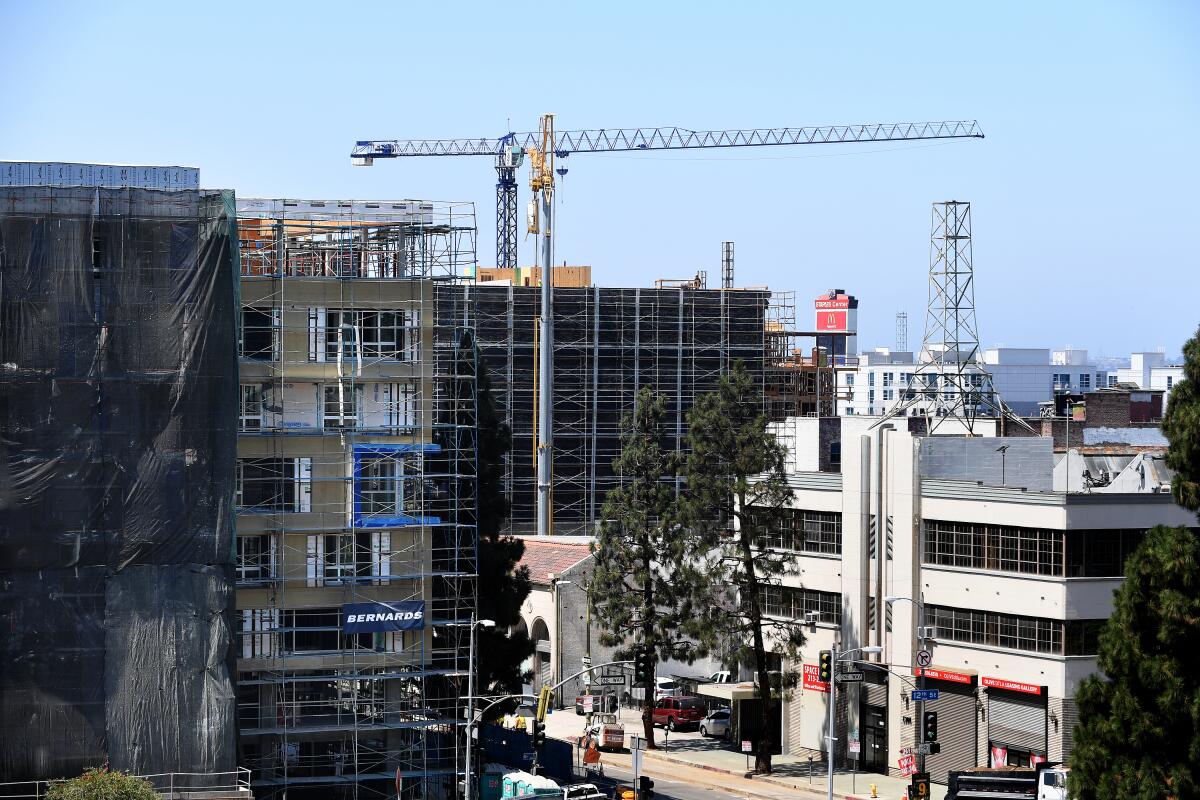Letters to the Editor: L.A.âs âmansion taxâ hits a lot more than just mansions -- and it hurts renters

To the editor: The problem with the so-called mansion tax implemented by Measure ULA in the city of Los Angeles is the unintended consequences that outweigh any good it does. (âL.A.âs âmansion taxâ has collected $375 million. Where is the money going?â Sept. 6)
The tax is not just on âmansionsâ; it also includes all real estate sales over $5.1 million and is the main reason why developers are no longer building residential apartments in Los Angeles. Developers often work on a 15%-to- 20% margin, and the additional 5.5% tax on transfers greater than $10.3 million (and 4% over $5.1 million) makes their projects untenable.
With new rental apartment projects at a halt, the city no longer gets a percentage of low-income units from new construction, and there is less âmove upâ housing for those in cheap rentals. The benefit goes to a handful of lucky renters while it hurts the majority who cannot find apartments.
Richard Klug, Los Angeles
..
To the editor: The Measure ULA tax is deeply flawed and deeply unfair for many people.
In my case, my house has appreciated over the past 10 years since I purchased it to about $5.25 million. I have a lot of equity in the house but also a lot of debt. My wife and I need to sell and want to downsize, but selling the house with this new ULA tax will cost us about $200,000. Thatâs money we desperately need, and it was always part of our retirement plan.
The ULA tax assumes anyone who has a house worth more than $5 million is rich. That is simply false, especially in an expensive city like Los Angeles.
The tax needs to be repealed in its current form and made more fair for everyone.
Philip Korman, Los Angeles





